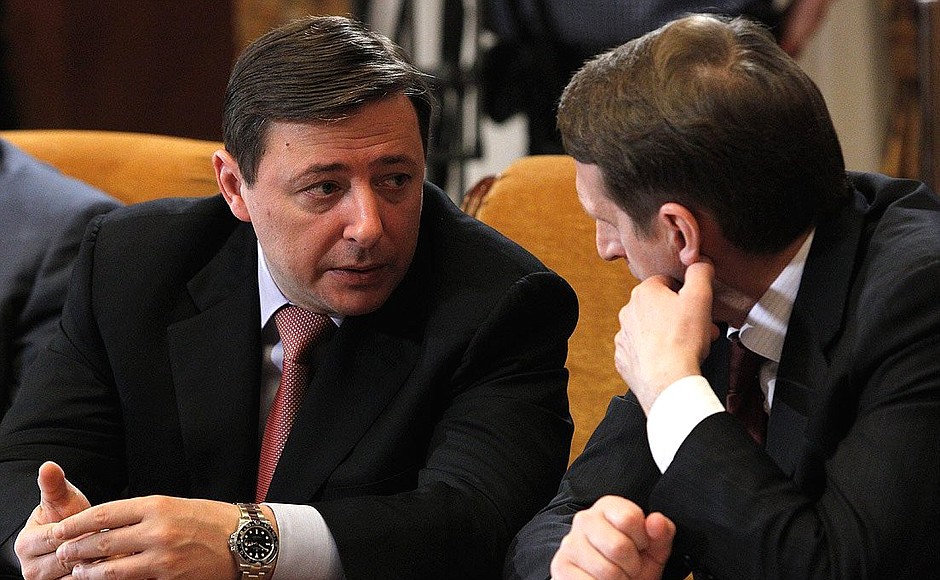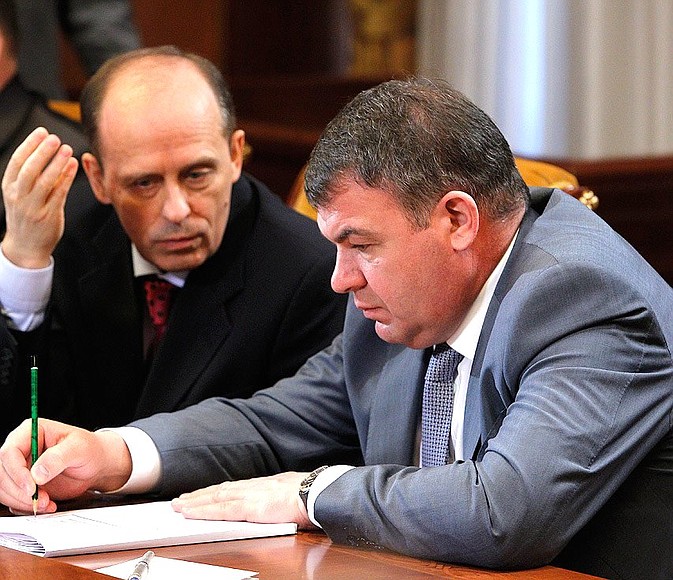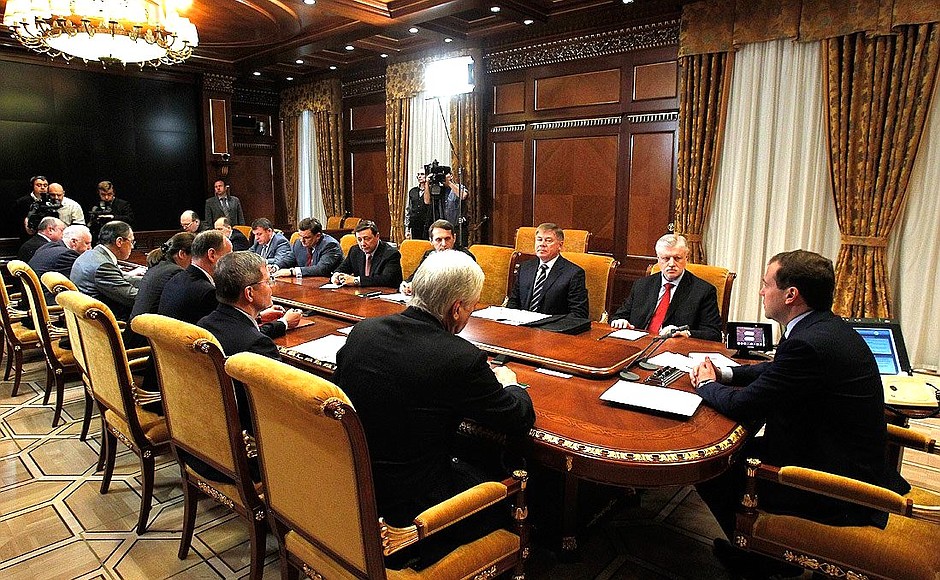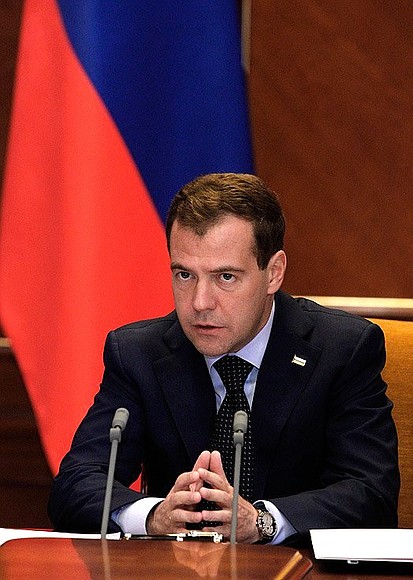Dmitry Medvedev instructed to draw up a set of standard procedures for ensuring the safety of Russian citizens and representative offices abroad in the event of emergency situations, including terrorist threats.
Taking part in the meeting were Speaker of the Council of Federation Sergei Mironov, Speaker of the State Duma Boris Gryzlov, President of the Supreme Court Vyacheslav Lebedev, Prosecutor General Yury Chaika, Chief of Staff of the Presidential Executive Office Sergei Naryshkin, Secretary of the Security Council Nikolai Patrushev, Deputy Prime Minister and Presidential Plenipotentiary Envoy to the North Caucasus Federal District Alexander Khloponin, Presidential Aides Larisa Brychyova and Konstantin Chuychenko, Foreign Minister Sergei Lavrov, Defence Minister Anatoly Serdyukov, Interior Minister Rashid Nurgaliyev, Chairman of the Investigative Committee Alexander Bastrykin, Director of the Federal Security Service Alexander Bortnikov, Director of the Foreign Intelligence Service Mikhail Fradkov, and Director of the Federal Penitentiary Service Alexander Reimer.
* * *
President of Russia Dmitry Medvedev: This meeting on security issues is taking place in a broader format than usual, when we have only the permanent Security Council members present. We will discuss several issues today, one of which concerns ensuring the safety of our property and facilities abroad in emergency situations, and protecting our citizens working there, our diplomats and also our people who simply happen to be abroad at that moment.
There have been quite a few such crises recently, the events in the Middle East and North Africa, and then the natural disaster and subsequent nuclear plant accident in Japan. In general, the world sees quite a few such emergencies over the course of any year.
”We have to have effective response procedures in place enabling us to protect our facilities and their staff, and organise rapid evacuation of our tourists and businesspeople. These procedures must be well-planned and universal enough to be used in the whole range of various circumstances that may arise.“
In this situation, we have to have effective response procedures in place enabling us to protect our facilities and their staff, and organise rapid evacuation of our tourists and businesspeople from countries where negative processes develop that could damage our interests and even threaten our people’s lives. These procedures must be well-planned and universal enough to be used in the whole range of various circumstances that may arise.
What’s more, crimes and attacks of various sorts can also have an impact on the activities of our offices abroad, and we should ensure them a level of protection that corresponds to the level of threats around the world.
Events that take place abroad can ultimately have a direct impact on our interests and on events inside our country. Eliminating terrorists of the level of the recently killed Bin Laden, say, has a direct bearing on the level of security within our country. We all know, after all, that the Al-Qaida terrorist network regularly sent its emissaries to our country and continues to do so.
These emissaries have been killed on a regular basis in the operations our security and law enforcement agencies carry out. This makes it all the more important for the Security Council, the law enforcement agencies, and other agencies too, including the Foreign Ministry, to pay particular attention in their day-to-day work to the links between events abroad, foreign governments’ actions, the efforts to settle crises abroad, and events within our own country.
I want to discuss these matters with you today and also look at a few other issues of internal significance, which is why the heads of the courts and law enforcement agencies have been invited to take part in today’s discussion.
<…>



